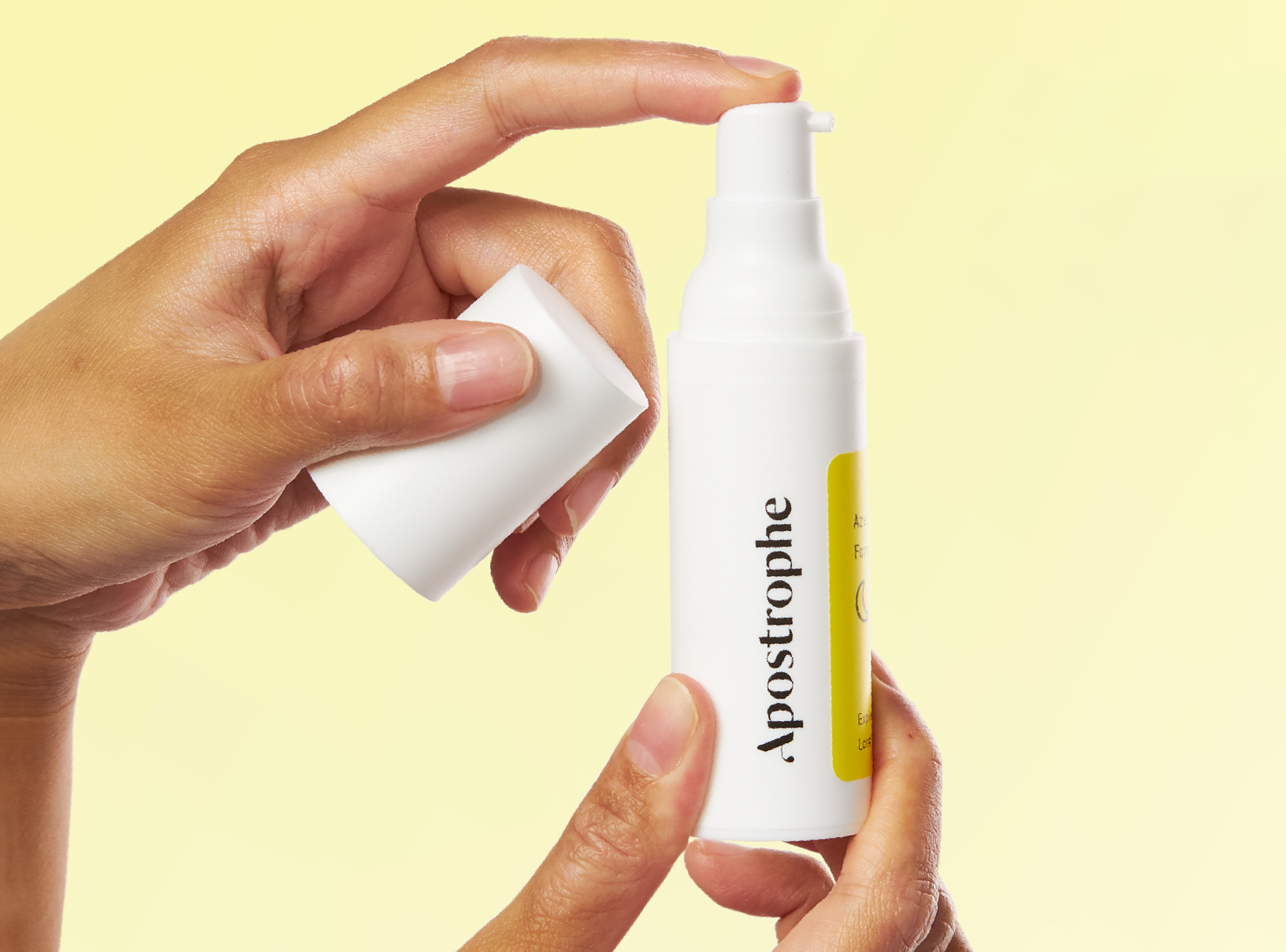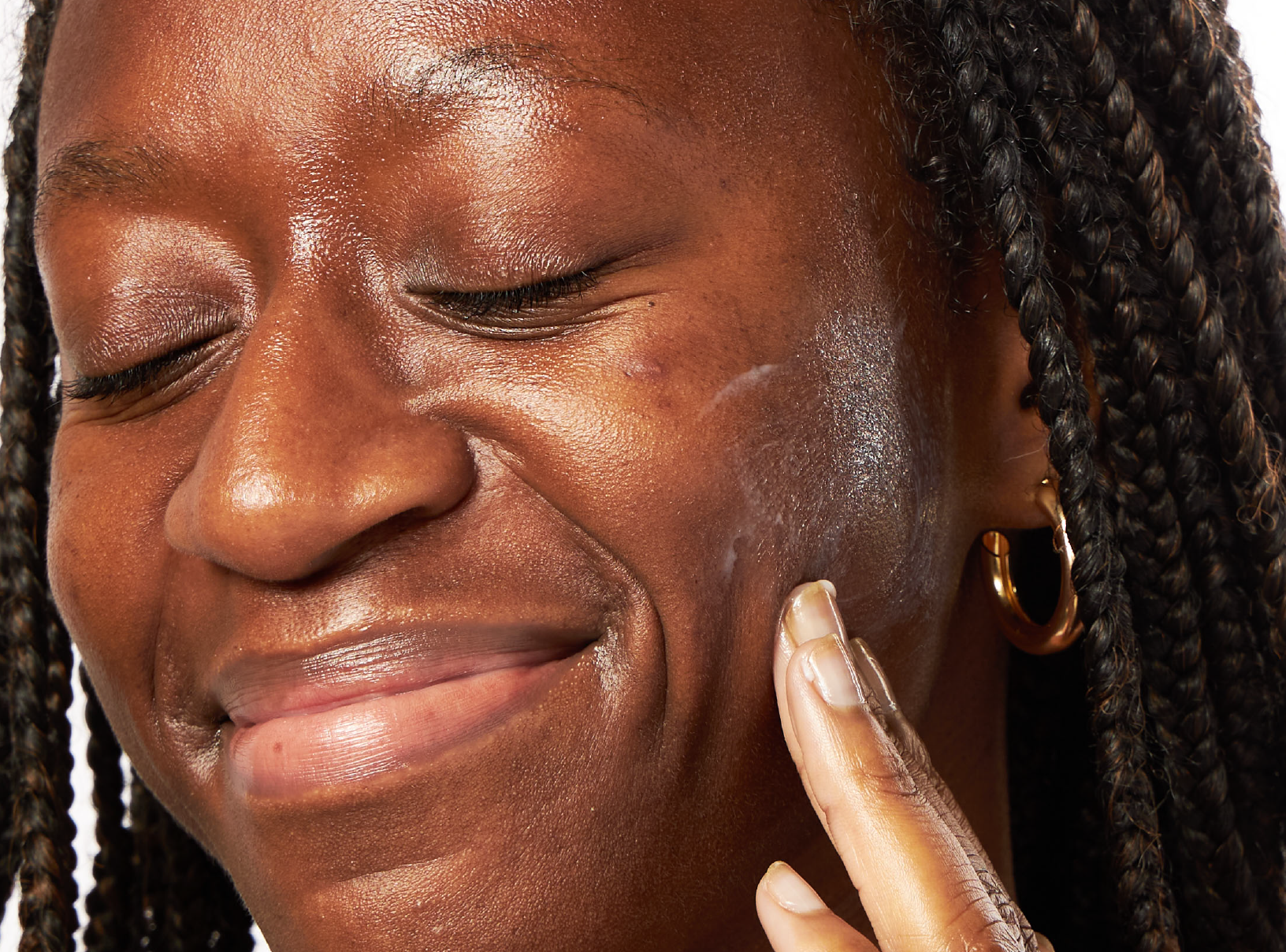Education
Sun Safety Tips | Apostrophe


SHARE
Education
Sun Safety Tips | Apostrophe
Medically reviewed by Aimee Paik, MD
Written by Apostrophe Team
Last updated 10/1/2024
Skin Sun Protection 101: Why A Sunscreen Should Be Apart of Your Daily Routine
There’s nothing quite like a full day of fun in the sun. But if you’re not taking the right measures to stay protected from the sun exposure instead of crispy, your fun may not last very long. Luckily, it’s not all that hard to enjoy and protect yourself—not just during summer, but also every day of every season.
With a bottle of sunscreen in your bag and these handy tips and tricks up your sleeve, you’ll be well on your way to healthy, nourished skin.
Here’s an overview of what’s ahead:
A closer look at the health and cosmetic benefits of sunscreen use
The importance of applying—and reapplying—sunscreen every day
Special characteristics you should consider when purchasing facial sunscreen
Additional measures you can take to protect your skin from the sun’s rays
Health and Cosmetic Benefits of Sunscreen
From a young age, you’ve likely been taught that wearing sunscreen for an outdoor activity or a day by the pool is a must. As you’ve gotten older, you’ve probably heard friends or doctors stress the importance of incorporating SPF into your daily skincare routine, regardless of the day’s activities, because of the many skin conditions caused by sun damage.
Why is there so much insistence on protecting your skin with sunscreen on a daily basis?
Even if you’re spending most of the day behind a desk, you’re likely still experiencing some exposure to the sun’s rays. That’s why you should apply sunscreen daily to protect your skin no matter what it goes through. In fact, applying sunscreen regularly can result in a number of health and cosmetic benefits, including:
Improved photoaging – According to a clinical study, wearing a facial, broad-spectrum sunscreen every day for one year resulted in significant improvements in photoaging (a fancy way of saying ‘sun damage’). Why should you care about photoaging? It’s often the culprit behind signs of premature aging, such as sunspots, wrinkles, and loss of elasticity.
This explains why 100% percent of the subjects that took part in the study showed improved skin clarity and texture. With daily sunscreen use, you too can experience youthful skin that’s even-toned and smooth to the touch.
Reduced risk of skin cancer – From the perspective of physical wellness, remember that skin is your body’s largest organ and that it’s worth investing in all 8 pounds and 22 square feet of it. If you’re wondering, “What SPF should I use?,” experts recommend using sunscreen with a minimum of SPF 30 every day to prevent skin cancer due to overexposure to UV rays and effectively shield your skin from these harmful rays.
This means, when worn consistently, sunscreen can limit the risk of developing a serious skin disease and the number of unwanted wrinkles and spots as you age.
Why You Should Wear Sunscreen Every Day, Rain or Shine
Slathering your face with sunscreen on a rainy day may seem unnecessary and sunscreen myths might make you believe you only need to use sunscreen on clear, sunny days—until you recall that your most painful sunburn might have happened on a cloudy hike, trip to the beach on a gray day, or outing to the park under overcast skies.
This is because your exposed skin can still burn even when it’s cloudy, cold, or downright dreary. The proof is in the UV index—a scale used to measure ultraviolet ray levels. Check the monthly averages in your area, and you’ll find that even in colder months, such as October, there are UV index readings as high as 6. The EPA designates a reading between 3 and 5 as a moderate risk for sunburn, whereas a range above 6 to 7 indicates a high risk.
This means that even spending thirty minutes outdoors during the fall without sunscreen could put you at risk of overexposure. And if you thought you were safe indoors, think again. Since glass can only filter UVB rays, it’s still possible for UVA rays to damage your skin through a nearby window.
The moral of the story? Wear sunscreen every day, no matter the weather.
But now that we’ve covered the why, let’s take a look at the what.
What Kind of Sunscreen Should You Wear?
With countless sunscreen options available at your local pharmacy or grocery store, it can be difficult to know which one is the best choice for effective UV protection. Not all sunscreens are created equally, so when shopping for SPF, be sure to consider the following characteristics:
Broad-spectrum SPF – Broad-spectrum SPF protects your skin from both UVA and UVB rays, making it a non-negotiable sunscreen characteristic. After all, if you’re going to put in the work of applying sunscreen daily, you should ensure you’re getting the most comprehensive protection available from skin damage caused by sun exposure.
An SPF of 30 or higher – An SPF of 30 is the bare minimum when it comes to protecting your skin, but to seriously shield yourself from the sun’s rays, set a standard of 30 or higher. The higher you go, the more solidly you’ll build your wall of protection.
Something breathable and lightweight – A facial sunscreen with a thick texture doesn’t necessarily mean more protection. In fact, the best sunscreen for clogged pores is not overly greasy and prevents irritation.
Note: if you're going to be swimming or sweating, we recommend looking for a water resistant sunscreen.
How Often Should You Reapply Sunscreen?
What’s something that’s just as important as the sunscreen itself? The frequency with which you apply it. Sweating, swimming, and other types of exercise can cause your sunscreen to wear off and lose its effectiveness throughout the day.
That’s why reapplication is another integral piece of the sun-blocking puzzle. The experts at Johns Hopkins Medicine suggest doing so every two hours if you’re active and constantly on the go. If, on the other hand, you tend to spend your days inside and away from windows, one application should be enough to protect you throughout the day. Either way, it’s prudent to keep a small bottle of sunscreen in your bag, your car, or at your desk, just in case.
Other Ways to Protect Yourself From The Sun
Aside from wearing and reapplying sunscreen on a daily basis, there are a number of additional measures you can take to reduce your risk of UV overexposure. Complement your daily sunscreen routine with a few of the following sun safety tips:
When outside, wear a hat to keep the sun off your face. Be sure to opt for something with a wide brim that can cover your ears and neck in addition to your face.
If you know you’ll be spending the majority of your day outside, make an effort to take breaks from the sun by sitting in the shade whenever possible. While vitamin D is important, it’s much more safely obtained with meal and vitamin supplements than through sun exposure—so enjoy the outdoors in the shade.
What’s one of the most commonly overlooked sun safety tips? Protecting your lips! Because your lips are also susceptible to sunburns, find a lip balm with SPF to prevent them from drying, chapping, and burning in the sun.
Don’t forget about the importance of protecting your eyes too. A pair of reflective sport sunglasses can go a long way in limiting the amount of sunlight that reaches your eyes.
Eyes? Check. Lips? Check. Limbs? Long sleeves and pants can act as protective barriers between your extremities and the sun. During hot summer months, consider choosing linen fabrics that provide coverage while also allowing breathability.
When the UV index is particularly high—typically between the hours of 11am and 4pm—your risk of sunburn increases. If possible, opt for an indoor activity during these times.
To ensure skin that’s radiant and—more importantly—protected, seek out help and advice from the skin care experts at Apostrophe.
Protect and Nourish Your Skin with Apostrophe
Just like brushing your teeth or taking a shower, applying sunscreen should be part of your daily to-dos. In fact, it’s how to protect skin from the sun naturally and ensure its longevity.
At Apostrophe, we stand behind the positive effects that proper and consistent sunscreen application can have on both your health and your confidence.
We also understand that everyone’s skin care journey is unique. That’s why we work with you to develop a personalized skin care solution suited to your specific needs, from sun protection to acne treatment. How?
Start by telling your provider about your skin—what’s worked for you in the past and what hasn’t.
Take a few photos to provide a closer look at the current state of your skin.
Within 48 hours, a dermatology provider will craft a personalized plan.
For custom skin care products and to start your new skincare journey, get started with Apostrophe today.
Sources
Advanced Pharmaceutical Bulletin. Anti-aging and Sunscreens: Paradigm Shift in Cosmetics. https://www.ncbi.nlm.nih.gov/pmc/articles/PMC6773941/
National Library of Medicine. Daily Use of a Facial Broad Spectrum Sunscreen Over One-Year Significantly Improves Clinical Evaluation of Photoaging. https://pubmed.ncbi.nlm.nih.gov/27749441/
National Geographic. Skin. https://www.nationalgeographic.com/science/article/skin-1
Like what you just read? Sign up for our email list to get the scoop on skincare science delivered straight to your inbox.

Deep Dives
A dermatologist shares his thoughts on the recent studies about benzoyl peroxide and benzene.
Read More
Education
What is milia?
What is milia? Today, we’re jumping into one type of bump that you may have heard about most commonly in infants — milia.
Read More
Education
Best moisturizer for acne-prone skin
If you have combination acne-prone skin, figuring out which moisturizer is best for your skin might be tough. In this guide, we break down the best moisturizer for combination, acne-prone skin.
Read More
